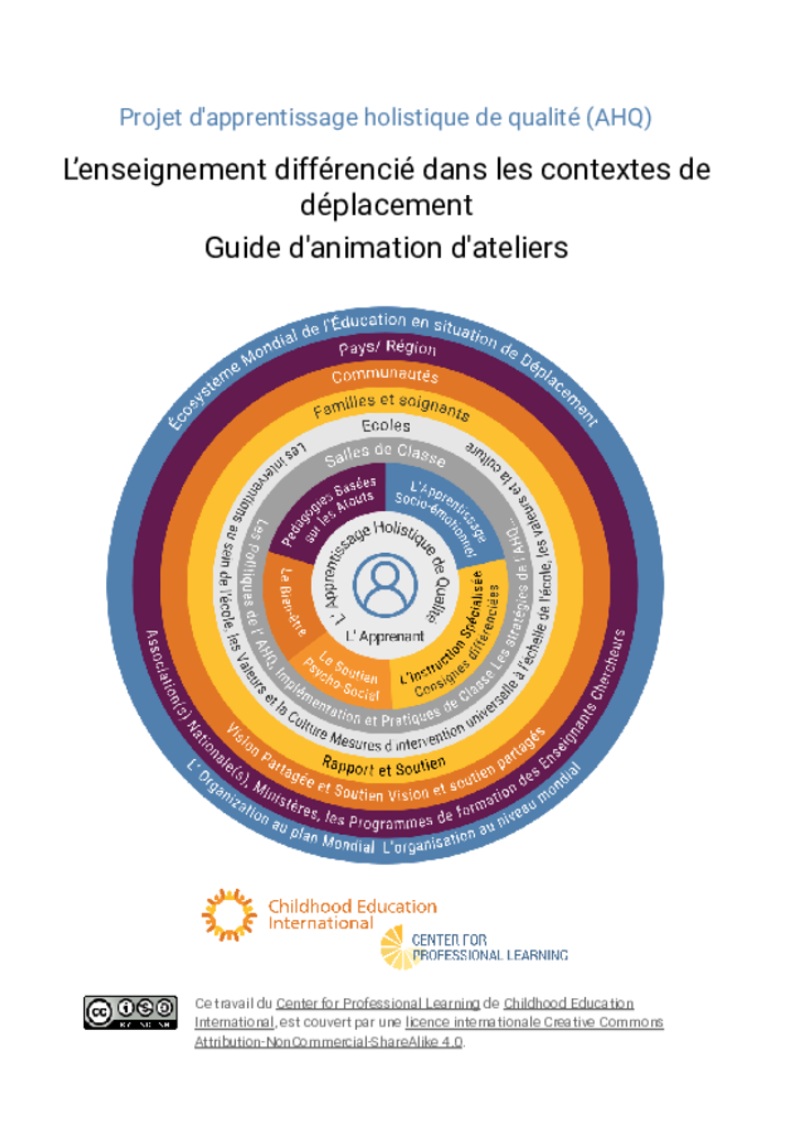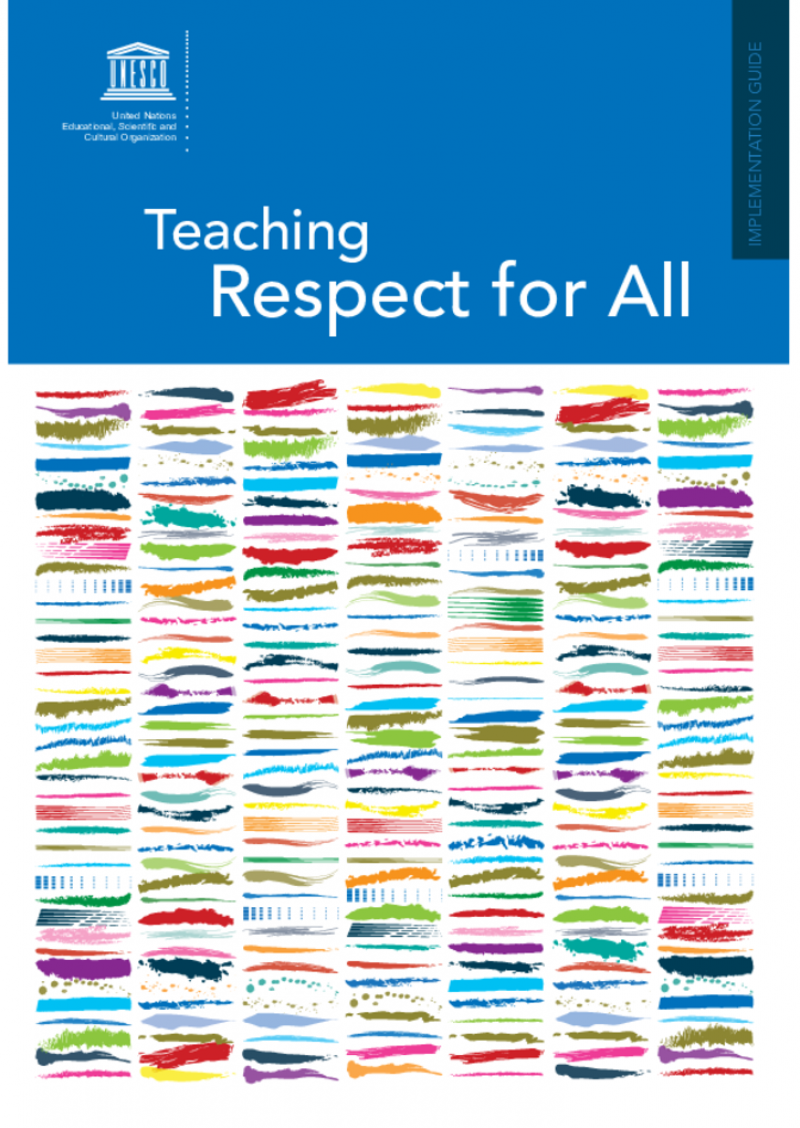Centre de Ressources pour les Enseignants
Affichage de 1 à 5 sur 5
L’enseignement différencié dans les contextes de déplacement. Guide d’animation d’ateliers
Dans ce guide, vous trouverez des stimuli qui vous aideront à explorer le contenu et à l'appliquer au contexte local. Vous y trouverez également des conseils qui aideront les éducateurs à allouer de l'espace et du temps pour l'apprentissage professionnel dans leur vie chargée et souvent stressante. Enfin, nous proposons quelques conseils sur les aspects en ligne et/ou technologiques de cette formation.
Le projet d'apprentissage holistique de qualité (AHQ), dont cet atelier en face-à-face est l'un des éléments, vise à préparer les éducateurs à dispenser des leçons de haute qualité qui soutiennent la formation holistique pour les enfants et les jeunes d'origines diverses (réfugiés, migrants et/ou citoyens) dans les pays d'accueil, les situations de déplacement et les contextes de crise. Nous définissons l'apprentissage holistique de qualité comme celui dont l’objectif est :
- le développement scolaire, cognitif et identitaire,
- l'apprentissage socio-émotionnel, et
- le bien-être mental / psychosocial et physique et qui délivre: des expériences scolaires positives, un sentiment d'appartenance et de sécurité, la croissance et le développement, et des résultats équitables pour tous les apprenants.
Play & resilience: a toolkit for teachers, caregivers, and other stakeholders
Play is an easy, natural and universal practice that builds resilience. Play comes naturally to all children- and is a seemingly simple and light-hearted phenomenon. The power of play as a pathway to building resilience needs to be leveraged to provide children with the opportunity to further explore play in their home and school environments.
This toolkit is therefore premised on the objectives to build the capacity of various stakeholders such as caregivers/teachers, school managers, curriculum planners and policy makers who are key actors in the process of growth and development of children. It is also aimed at equipping these stakeholders with the knowledge and pedagogical skills to translate research, policy and curriculum to practical knowledge and activities for children in the school environment. The toolkit offers directions for facilitators who will be working with caregivers/teachers using the materials and resources provided and other relevant materials available in an environment where it will be used.
A Teacher's Guide for Arts, Music and Drama in Africa
Art, music and drama have had a pivotal role in the livelihood of human beings. This is clear by the wealth of literature, architecture, fine art, theater and music that define human past, present and future. The inherent creative ability and a yearning to express ourselves is what gives value to art, music and drama as companion components in human evolution.
This teacher's guide covers art, music, dance, drama, experiential learning, community engagement, and how to integrate these aspects into curriculum. Additionally, this document provides lesson plans for primary school students in these subject areas.
Social and emotional learning for schools
This is a dual certifying course that combines social and emotional learning (SEL) for classrooms and SEL for teachers. The objective of the certification is to enhance personal well-being and build the professional capacity of teachers for SEL.
Teaching respect for all: implementation guide
This Teaching Respect for All Implementation Guide comprises a set of policy guidelines, questions for self-reflection, ideas and examples of learning activities to integrate Teaching Respect for All into all aspects of upper primary and lower secondary education, in an effort to counteract discrimination in and through education. It mainly targets policy makers, administrators/headteachers and formal and informal educators.
Part 2 targets headteachers and education NGO managers, suggesting key areas of intervention with a list of possible actions/activities and Part 3 targets teachers and describes methods of dealing with difficult topics such as racism and discrimination with learners as well as provides suggestions for possible entry points and topics to link the issues of respect for all with particular teaching subjects.



